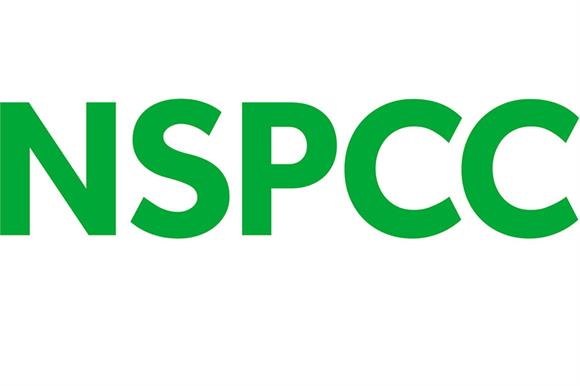– Young people as likely to see online porn accidentally as they are to search for it
– More than half of 11-16 year-old boys who had seen porn view it as realistic
– Most extensive survey of UK secondary school pupils on impact of porn
Repeated viewing may make children ‘desensitised’ to the damaging impact of pornography, with young people often seeing it as realistic and some wanting to copy what they have seen . The findings were made in research which included a significant number of children from Wales and was commissioned by the NSPCC and the Children’s Commissioner for England.
A survey of more than 1,000 children aged 11-16 found that overall, at least half had been exposed to online porn, with almost all (94%) of this group having seen it by age 14. This included 28% of 11-12 year-olds reporting exposure to online porn. Focus groups and online forums with young people were also used by researchers from Middlesex University to find out about the impact of online porn on young people, in the largest survey of its kind.
Children were as likely to find pornography accidentally, as to deliberately search for it – and a quarter had received online links. The first exposure to porn was at home for almost two-thirds of children.
Around 41% of children who reported seeing porn felt ‘curious’ the first time they viewed it, the most common response. However, more negative feelings such as being shocked (27%), confused (24%) or disgusted (23%) were also experienced.
Follow up work with the 11-16 year-olds asked them about the online porn they currently saw. This revealed that just under a third (30%) of children who viewed it remained curious while just 8% were still shocked, and 13% disgusted.
Boys in particular wanted to copy some of the behaviour they had seen. More than a third (39%) of 13-14 year-olds who responded to this question – and a fifth of 11-12 of year-olds (21%) – wanted to do this. This was despite more than three quarters of respondents agreeing that pornography did not help them understand consent (87% of boys and 77% of girls).
Around a fifth of children who had seen porn were made to feel either repulsed or anxious by what they had seen. Younger children were more likely to be disturbed by viewing porn.
One 11-year-old girl said: “I didn’t like it because it came on by accident and I don’t want my parents to find out and the man looked like he was hurting her. He was holding her down and she was screaming and swearing.”
Just over half of boys (53%) believed that the pornography they had seen was realistic compared to 39% of girls. A number of girls said they were worried about how porn would make boys see girls and the possible impact on attitudes to sex and relationships.
“It can make a boy not look for love, just look for sex and it can pressure us girls to act and look and behave in a certain way before we might be ready for it,” said one 13-year-old girl. A boy of the same age said: “One of my friends has started treating women like he sees on the videos – not major – just a slap here or there.”
Another 13-year-old girl said: “A few of my friends have used it for guidance about sex and are getting the wrong image of relationships.”
Young people who took part in the research stated that lessons in school which explored issues surrounding online pornography can help them to understand better the importance of respectful relationships. However, they often said the sex and relationships education they received was patchy and didn’t cover this effectively.
Peter Wanless, NSPCC chief executive, said: “A generation of children are in danger of being stripped of their childhoods at a young age by stumbling across extreme and violent porn online. Frighteningly, some children are growing up believing that they should emulate the behaviour they see in porn, which can have a damaging effect on their relationships.
“Whilst many children will engage with pornography as a way of exploring their sexual identity, others come across it inadvertently whilst online. Exposing children to porn at a young age before they are equipped to cope with it can be extremely damaging. Industry and Government need to take more responsibility to ensure that young people are protected. Some companies have taken the initiative when it comes to online safety, we will continue to put pressure on those that have not yet done so.
“Building children’s digital resilience is vital. We need to enhance their awareness and critical understanding of the content they either seek or stumble across – and ensure sex is placed in the context of loving, respectful relationships based on mutual consent. Age appropriate sex and relationship education in schools, dealing with issues such as online pornography and children sending indecent images, are crucial.”
Anne Longfield, Children’s Commissioner for England, said: “Many children and young people who view pornography are disturbed by it and many may not feel able to talk through their feelings to a parent or other trusted adult, so it is worrying that millions are viewing it, whether they’re stumbling on it by accident or actively searching for it.
“Only now are we beginning to understand its impact on ‘smartphone kids’ – the first generation to have been raised with technology that’s taken the internet from the front room, where parents can monitor use, to their bedrooms or the playground, where they can’t.
“In recent years the Government and internet providers have done much to restrict children’s access to pornography but there is no room for complacency – parents, teachers, regulators and the digital industry must not let up in efforts to do so. They must also do more to help children who do see porn to understand what they have seen. We know from the research that very many children are shocked, confused or disgusted by what they see and it is our duty to help them to question, challenge and make sense of it.”
The research co-lead from Middlesex University, Dr Elena Martellozzo, said:
“Although many children did not report seeing online pornography, it is worrying that some children came across it accidentally and could be sent it without seeking it. If boys believe that online pornography provides a realistic view of sexual relationships, then this may lead to inappropriate expectations of girls and women. Girls too may feel pressured to live up to these unrealistic, and perhaps non-consensual, interpretations of sex. This is clearly not positive for developing future healthy relationships.
“There is a huge task ahead for parents, teachers and policy makers. We found that children and young people need safe spaces where they can freely discuss the full range of issues related to sex, relationships and the accessibility of online porn in the digital age. Children should be protected from pressures to share sexual language, images and encouraged to explore issues of consent and relationships in age appropriate, gender balanced ways.”

| [donate]
| Help keep news FREE for our readersSupporting your local community newspaper/online news outlet is crucial now more than ever. If you believe in independent journalism,then consider making a valuable contribution by making a one-time or monthly donation. We operate in rural areas where providing unbiased news can be challenging. |



















